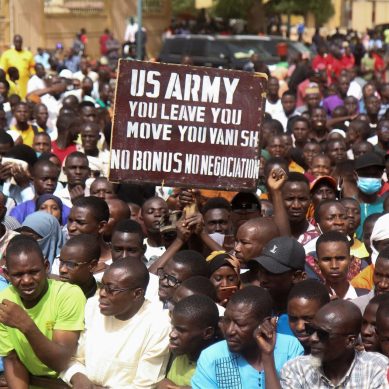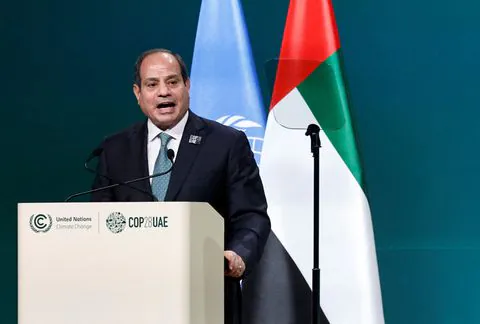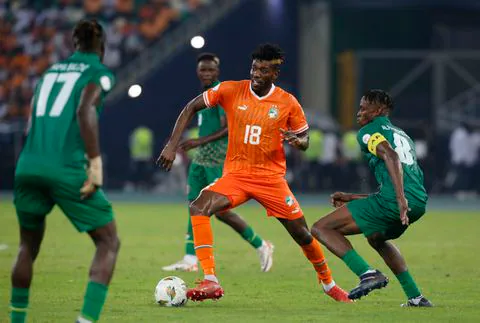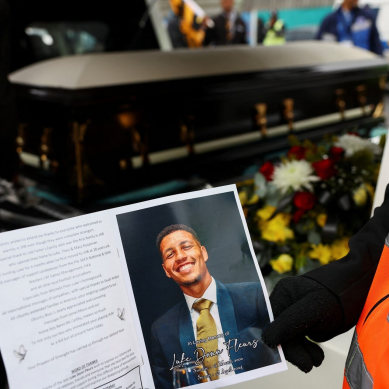
We live in a Global Village, which is diminishing mainly because of ever-improving communication between nations and individuals, but also because of globalisation of almost everything conceivable. We have seen how poverty, disease and ignorance have been globalised. The structure and function of the global economy dominated by corporatism explains the continuing domination, exploitation and globalization of poverty.
The craze and quest for global domination explains why some countries are investing so much time, energy and money to create devastating biological agents usher in diseases that were never known before. We have just risen out of a period ravaged by Covid -19 caused by a coronavirus ostensibly made in China.
Against this background the world has specialised in creating organisation to try and put sense where there is nonsense in order to make our only liveable Planet Earth in our observable universe continually liveable. Such organisations allow humanity from all over the globe to have minds to meet or clash over mostly man-created or magnified issues and problems. This way Man, Homo sapiens uses such institutions to talk and try to provide answers to the wicked issues and problems confronting humanity.
Such issues and problems include cooperation, development, resources depletion, pollution and climate change. One such global organisation is the United Nations, with more than 150 nations as members, but still dominated by a few members in terms of security called Security Council. These are members that characterize themselves as the big countries.
Another global organisation worth mentioning is the 120-member organization called Non-Aligned Movement (NAM). I recently wrote an article on this organisation in my article “What is Non-Alignment in the Era of Globalisation?” just before it held its 19th Conference in Kampala, Uganda from January 2024. The Conference ended on January 16, with Azerbaijan president handing over the chairmanship of the organisation to Uganda’s President, Tibuhaburwa Museveni.
President Tibuhaburwa Museveni will be chairman of NAM from this year to 2027, soon after Uganda’s 2026 general and presidential elections in which the president is expected to be, as usual the sole candidate for his party, the National Resistance Movement Organisation (NRMO), which was registered as such, but the new chair of NAM told his colleagues at the NAM conference that his is not a party.
The period 2024-27 is as long as a student at Makerere University takes to pursue a three-year study for a degree. It will be interesting to see what achievements NAM will make under the Museveni leadership. There are many in Uganda who believe that for the NAM conference to take place in Uganda, government did a lot of lobbying to have it held in the country.
I have already congratulated President Tibuhaburwa Museveni on his assumption of the Chairmanship of NAM. My interest in this is not to inquire into what Uganda will gain or has already gained from the potential and actual Museveni chairmanship of NAM. My interest as the title of the article suggests is “The Implication of Museveni NAM Chairmanship on Uganda Politics”.
Even before President Tibuhaburwa Museveni assumed the chairmanship of NAM, actually during the early parts of the NAM conference, President Museveni’s instruments of coercion, which these days are indistinguishable from one another, swung into action to depoliticise, de activate and deradicalise the Opposition parties that organised themselves to push their political agenda as The United Forces of Change towards bringing an end to the perennial rule of President Tibuhaburwa Museveni. The venue of their meeting was sealed off with heavy military gear and their meeting did not take place. This was not new in Uganda politics. As usual the homes of some key Opposition leaders associated with the United Forces for Change – principally Kiiza Besigye, Kyagulanyi Ssentamu and Elias Lukwago were militarily besieged throughout the period the NAM Conference process went on.
One thing is true. Throughout President Museveni’s rule, especially since 1996 when he surrendered himself to elective politics, Opposition politicians have not been allowed to enjoy free political association and/or activities while the President rules. Theirs has been strictly controlled and regulated so as not to adversely affect the President hold onto power.
Sometimes some opposition members have disappeared or been incarcerated for long periods without meaningful trial. Even as I write the Opposition is continuing to demand the NRM government produce their members that are not in prison and have not been seen in public since the General and Presidential Elections in 2021.
What became clear was multifold:
- Not all Opposition Leaders associated with the United Forces of Change. Many who did not seem to be comfortable with the status quo
- Government was able to cast the Opposition as still a disunited lot that cannot meaningfully challenge President Museveni’s rule
- The instruments of coercion will always swing in to deradicalise the opposition with the gun, even when vistos are in the country
- The use of the instruments of coercion for political ends is likely to continue throughout President Tibuhaburwa Museveni’s chairmanship of NAM
- President Museveni’s chairmanship of NAM is likely to be used as a political tool to convince the unknowing that the president is an acceptable global leader that is above local politicking
- The general population is still docile and fearful and is not ready yet to align with Opposition parties to destabilise the political environment for change
- President Tibuhaburwa Museveni is ready to use his instruments of coercion to maintain and sustain a political environment suggesting that Uganda is a secure and peaceful
- Military security and peace will continue to dominate all considerations of security and peace throughout President Tibuhaburwa Museveni’s Chairmanship of NAM
- The politics of Uganda will continue to be determined by how President Tibuhaburwa Museveni chooses to use the military and militarized police to control and regulate the movements and actions of the political actors in the Opposition; not the ballot paper
Therefore, if one wants to know the implications Museveni NAM leadership on Uganda politics, that is it: No Change. NAM principles that emphasis human rights and equality are likely to be violated internally. Otherwise, the rest of the principles of NAM are outward-looking and have no consequence on Uganda’s internal politics.
The president may use his chairmanship of NAM as a demonstration that world leaders have confidence in his leadership, although global leadership has little to do with internal leadership of a country. He will continue to use statecraft to ensure that the next 3 years are for him to speak, not necessarily act, in such a way that he reaches different vulnerable groups by what each group wants to hear. He will continue to invest in rhetoric to say what different groups want to hear, not what must be done to transform the country.
The emphasis will, therefore, be power retention and political survival so that he can hand over Chairmanship of NAM to the next chairman. All indications are he will be president of Uganda throughout 2026 and will be there to see a new chairman assume the Chair of NAM.
Uganda politics is Museveni-centred. Collective action by Ugandans to change this is far from crystallising! The question is: What happens beyond President Tibuhaburwa Museveni?
For God and My Country
- A Tell report / By Prof Oweyegha-Afunaduula, a former professor in the Department of Environmental Sciences of the Makerere University, Uganda











